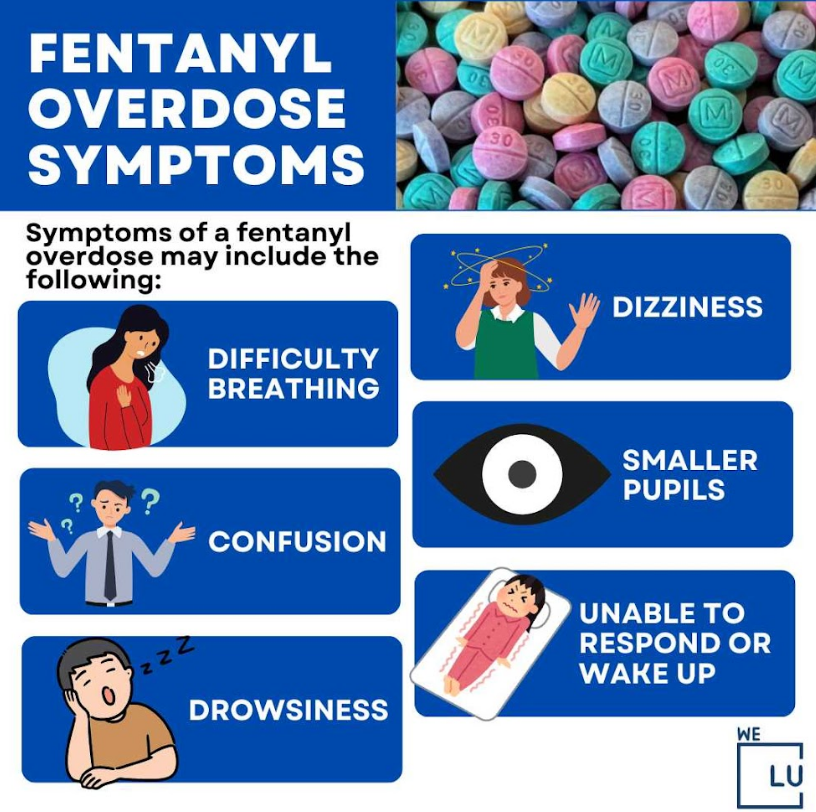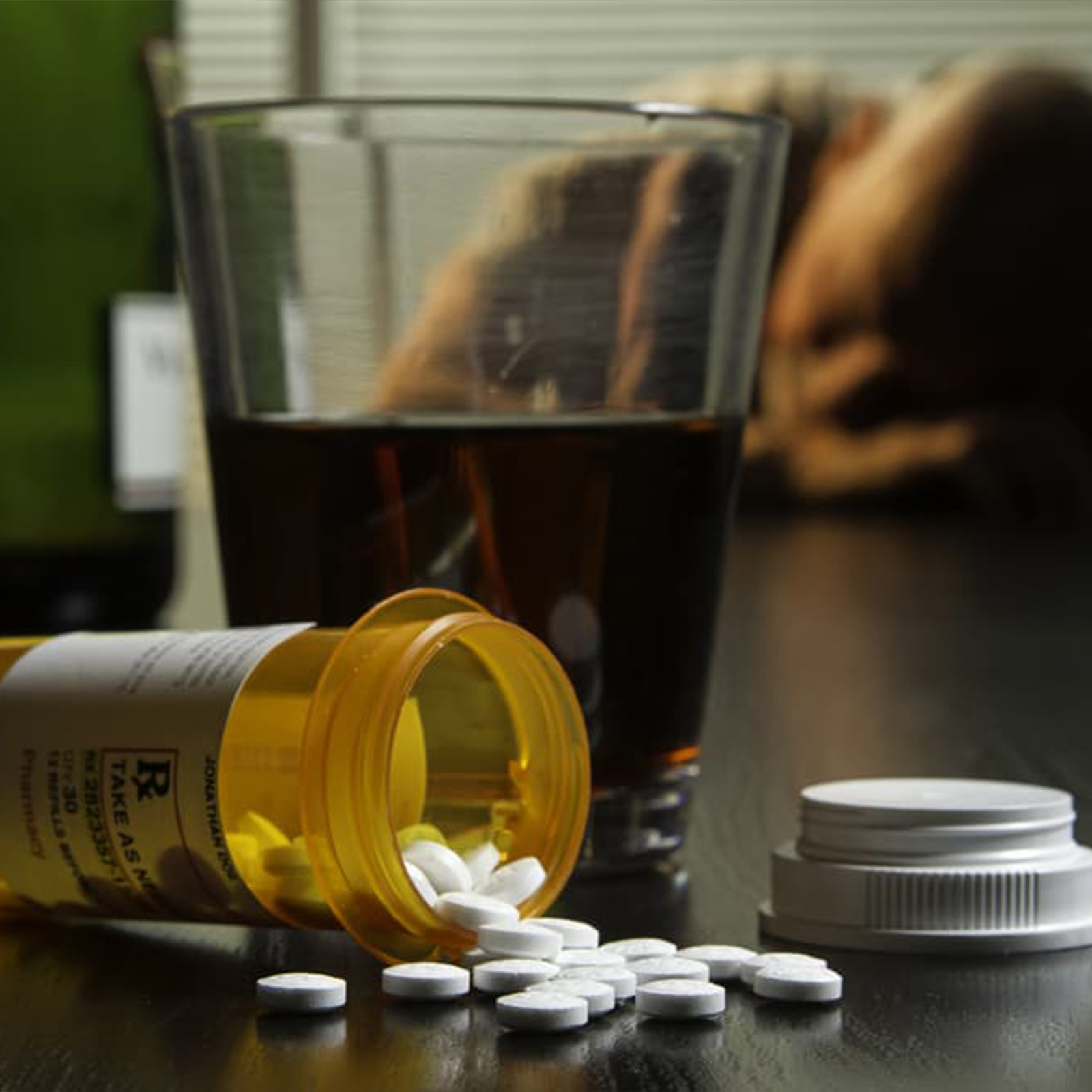Signs Of Fentanyl Overdose
Fentanyl is a powerful synthetic opioid commonly prescribed to treat severe pain, particularly in individuals with tolerance to other pain medications. Unfortunately, fentanyl can also be highly addictive and carries a significant risk of overdose, which can be fatal.
In recent years, fentanyl overdose deaths have increased dramatically, highlighting the need for greater awareness of the signs of fentanyl overdose and the importance of seeking prompt medical attention in the event of a suspected overdose.
Individuals who abuse or become addicted to fentanyl may exhibit a range of signs and symptoms that can vary depending on the severity of their addiction and the extent of their drug use. Some individuals may hide their drug use or exhibit no obvious signs of fentanyl use, while others may exhibit more obvious signs of addiction or overdose.
In this article, we will explore the various signs of fentanyl use, abuse, and overdose, as well as the steps that can be taken to seek help for individuals struggling with fentanyl addiction.
Whether you are a concerned friend or family member or an individual struggling with fentanyl addiction, understanding the signs of fentanyl overdose and the importance of seeking help can be critical in preventing a potentially life-threatening overdose. So let’s look closer at the signs of fentanyl use, abuse, and overdose and what you can do to help yourself or someone you love.
Fentanyl Overdose Signs Explained
Fentanyl is a potent synthetic opioid often prescribed to manage severe pain, particularly in individuals with cancer or who have undergone surgery.
However, due to its high potency, fentanyl carries a significant risk of overdose, which can be fatal. In recent years, fentanyl overdose deaths have increased significantly, highlighting the need for greater awareness of the sign of fentanyl overdose and the importance of seeking prompt medical attention in the event of a suspected overdose.
The signs of a fentanyl overdose can be similar to those of other opioids, but due to its potency, fentanyl can lead to a more rapid onset and progression of symptoms. Some of the common signs of a fentanyl overdose include:
- Respiratory depression: Fentanyl can slow down breathing and can lead to shallow breathing, difficulty breathing, or even stopped breathing, which can quickly become life-threatening. This is one of the most prevalent fentanyl signs of overdose
- Blue lips or nails: Due to inadequate oxygen supply to the body, individuals experiencing signs and symptoms of a fentanyl overdose may develop blue lips or nails.
- Pinpoint pupils: Fentanyl can cause the pupils to constrict, leading to pinpoint pupils.
- Cold and clammy skin: Fentanyl overdose can cause the skin to become cold and clammy.
- Confusion or disorientation: Fentanyl overdose can cause confusion, disorientation, or even loss of consciousness.
- Nausea and vomiting: Fentanyl can cause nausea and vomiting, contributing to dehydration and electrolyte imbalances.
It’s important to note that not all individuals who overdose on fentanyl will exhibit all of these signs. Some individuals may exhibit no obvious signs of a fentanyl overdose until it is too late. As such, it’s important to seek medical attention immediately if you suspect that you or someone you know may be experiencing a fentanyl overdose.
Signs Of Fentanyl Abuse
Fentanyl Signs And Symptoms
In addition to the signs of a fentanyl overdose, there are also fentanyl addiction signs and abuse that can serve as warning signs that an individual may be at risk of overdose. These fentanyl use signs may include:
- Using fentanyl even when it’s not prescribed or in ways other than prescribed (such as snorting or injecting).
- Continuing to use fentanyl despite experiencing negative consequences.
- Spending a significant amount of time and money obtaining and using fentanyl.
- Hiding or lying about fentanyl use.
- Neglecting responsibilities or activities in favor of using fentanyl.
- Developing a tolerance to fentanyl requires larger doses to achieve the desired effect.
Suppose you or someone you love exhibits signs of fentanyl addiction or you notice signs of someone using fentanyl. In that case, seeking professional help as soon as possible is important to reduce the risk of overdose and other negative consequences. Remember, an overdose is a medical emergency, and seeking prompt medical attention can be lifesaving.
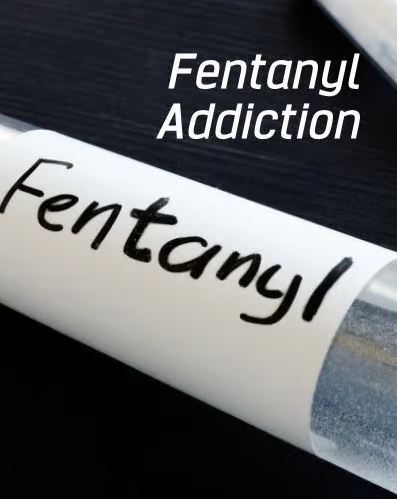
Skip To:
Learn More:
- How Long Does Fentanyl Stay In Your System, Urine, Blood, Salvia & Hair? Fentanyl Drug Test Duration Chart.
- What Does Fentanyl Do To You? Abuse, Side Effects & Treatment
- What is Tranq? (Xylazine), Tranq Dope, Tranq Wound, Tranq and Fentanyl Dangers.
- What is Fentanyl? Rainbow Fentanyl Symptoms, Uses, Side Effects, Overdose & Detox Withdrawal Timeline
- What Does Fentanyl Look Like? Rainbow Fentanyl, Colored Candy Fentanyl, Skittles Fentanyl Images, Facts, Warnings, & FAQs
- Carfentanil Drug
- Fentanyl Detox
- Fentanyl and Alcohol
- Fentanyl Rehab
- Fentanyl Withdrawal Timeline
Get Help. Get Better. Get Your Life Back.
Searching for Accredited Drug and Alcohol Rehab Centers Near You?
Even if you have failed previously and relapsed, or are in the middle of a difficult crisis, we stand ready to support you. Our trusted behavioral health specialists will not give up on you. When you feel ready or just want someone to speak to about therapy alternatives to change your life call us. Even if we cannot assist you, we will lead you to wherever you can get support. There is no obligation. Call our hotline today.
(844) 597-1011Most Popular Signs of Fentanyl Overdose FAQs
-
What Are The Signs Of Fentanyl Poisoning?
The signs of fentanyl poisoning may include pinpoint pupils, severe respiratory depression, clammy skin, muscle rigidity, and a slow heart rate. In some cases, fentanyl poisoning may also lead to seizures, cardiac arrest, and death.
-
What Are The Signs Someone Is On Fentanyl? Signs Someone Is Using Fentanyl
The signs someone is on fentanyl may include constricted (small) pupils, confusion, drowsiness, difficulty breathing, nausea or vomiting, constipation, and slurred speech. They may also exhibit a slow heart rate, blue lips or nails, or even a loss of consciousness.
-
What Are The Signs Of Fentanyl In Weed?
The signs of fentanyl in weed can be difficult to identify because fentanyl is odorless, tasteless, and colorless. However, some signs may include extreme drowsiness, confusion, difficulty breathing, and a loss of consciousness.
-
What Are The Signs Of Fentanyl Toxicity?
The signs of fentanyl toxicity may include severe respiratory depression, pinpoint pupils, clammy skin, muscle rigidity, and a slow heart rate. In some cases, fentanyl toxicity may also lead to seizures, cardiac arrest, and death.
-
What Are The Fentanyl Overdose Signs And Symptoms?
The signs and symptoms of a fentanyl overdose may include extreme drowsiness, difficulty breathing, confusion, pinpoint pupils, and a bluish tint to the skin or lips. Other symptoms may include cold and clammy skin, weak pulse, and a loss of consciousness. A fentanyl overdose can be fatal and requires immediate medical attention.
-
What Are The Signs Of Fentanyl In Candy?
The signs of fentanyl in candy may include extreme drowsiness, confusion, difficulty breathing, and a loss of consciousness. Notably, fentanyl is not typically found in candy, and the consumption of illicit drugs in this form can be very dangerous.
-
What Are The Signs Of Fentanyl In Cocaine? Signs Of Fentanyl In Coke
Cases of fentanyl in cocaine may include extreme drowsiness, confusion, difficulty breathing, and a loss of consciousness. Fentanyl is sometimes added to cocaine without the user’s knowledge, which can lead to a dangerous and potentially fatal overdose.
-
What Are The Signs Of Fentanyl Laced Weed?
The signs of fentanyl laced weed may include extreme drowsiness, confusion, difficulty breathing, and a loss of consciousness. Fentanyl is sometimes added to weed without the user’s knowledge, which can lead to a dangerous and potentially fatal overdose.
-
What Are The Signs Of Fentanyl Patch Overdose?
The signs of a fentanyl patch overdose may include extreme drowsiness, difficulty breathing, confusion, pinpoint pupils, and a bluish tint to the skin or lips. Other symptoms may include cold and clammy skin, weak pulse, and a loss of consciousness. Fentanyl patches are prescribed for pain management and should only be used as directed by a healthcare professional.
Fentanyl Factsheet
Fentanyl Overview
What does fentanyl do to you? Fentanyl is a synthetic opioid that is many times more potent than heroin and is primarily used for pain management. It can cause pain relief, sedation, and respiratory depression but can also lead to dangerous side effects and overdose. Fentanyl abuse can cause long-term physical and mental health problems, addiction, and dependence. It is a highly dangerous drug that should only be used as a healthcare provider prescribes.
Fentanyl Abuse Signs
- Pinpoint pupils
- Drowsiness or nodding off
- Confusion or disorientation
- Slurred speech
- Shallow breathing or difficulty breathing
- Nausea or vomiting
- Constipation
- Itching or skin rash
- Muscle rigidity or muscle weakness
- Social withdrawal or isolation
- Changes in behavior or mood
- Financial problems or stealing to obtain drugs
- Neglecting responsibilities or personal hygiene
It’s important to note that these signs can vary depending on the individual and the severity of their abuse. If you suspect someone is abusing fentanyl, it’s important to seek professional help.
Fentanyl Addiction Treatment
Fentanyl addiction is a serious condition that requires professional treatment. Here are some common treatments for fentanyl addiction:
- Medication-assisted treatment (MAT): MAT involves using medications, such as methadone or buprenorphine, to manage withdrawal symptoms and cravings. MAT is often combined with behavioral therapy.
- Behavioral therapy: Behavioral therapy involves counseling and other behavioral interventions to address the underlying causes of addiction and help individuals develop coping skills to prevent relapse.
- Inpatient treatment: Inpatient treatment involves staying at a treatment facility for a period of time to receive intensive therapy and support.
- Outpatient treatment: Outpatient treatment allows individuals to receive treatment while living at home and attending work or school.
- Support groups: Support groups, such as Narcotics Anonymous, can provide individuals with a supportive community of people who have also struggled with addiction.
It’s important to note that recovery from fentanyl addiction is lifelong and may require ongoing treatment and support. It’s also important to seek professional help from a healthcare provider or addiction specialist for the most effective treatment.
Fentanyl Abuse Statistics
Fentanyl abuse statistics show that fentanyl is a highly potent synthetic opioid that has become a major contributor to the opioid epidemic in the United States. In 2020, there were over 93,000 drug overdose deaths in the US, with fentanyl involved in over 60%. Fentanyl abuse has also increased in other countries, including Canada and the United Kingdom.
73%
Synthetic opioids, including fentanyl, were involved in almost 73% of all opioid-related overdose deaths in 2019.
Source: CDC
1.6 million
Approximately 1.6 million people aged 12 or older misused prescription pain relievers like fentanyl for the first time in 2020.
Source: The National Survey on Drug Use and Health
57%
Fentanyl seizures by law enforcement in the US increased by 57% from 2019 to 2020, with nearly 17,000 pounds of fentanyl seized in 2020.
Source: DEA
Signs Of Fentanyl Withdrawal
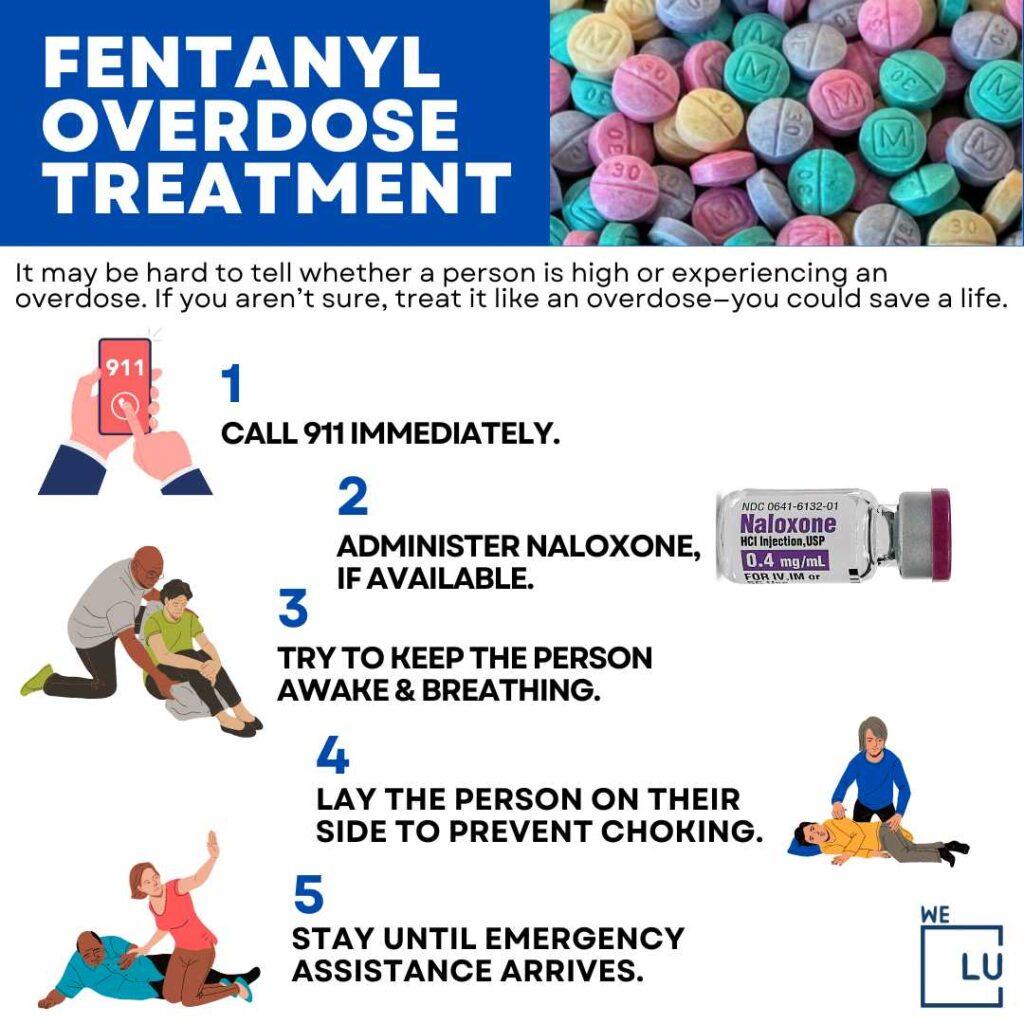
Fentanyl Signs Of Use Stopped
Fentanyl is a potent synthetic opioid that is commonly used for pain management. However, prolonged use of fentanyl can lead to physical dependence, resulting in withdrawal symptoms when the drug is discontinued.
Fentanyl withdrawal can be difficult to manage and, in some cases, life-threatening. Here are some common signs of fentanyl withdrawal:
Early symptoms of fentanyl withdrawal typically begin within 12-30 hours after the last dose of the drug and can include the following:
- Agitation.
- Anxiety.
- Muscle aches.
- Insomnia.
- Sweating.
- Yawning.
- Runny nose.
- Watery eyes.
- Restlessness.
- Dilated pupils.
- Goosebumps.
- Later symptoms of fentanyl withdrawal can appear within 2-4 days after the last dose of the drug and can include the following:
- Nausea and vomiting.
- Diarrhea.
- Abdominal cramping.
- Rapid heartbeat.
- High blood pressure.
- Fever.
- Chills.
- Tremors.
- Muscle spasms.
- Joint pain.
- Depression.
- Suicidal thoughts.
- Severe symptoms of fentanyl withdrawal, which may require medical attention, can include the following:
- Seizures.
- Hallucinations.
- Delirium.
- Respiratory depression.
- Heart failure.
- Coma.
It is important to note that fentanyl withdrawal can be dangerous, and individuals trying to quit the drug should seek medical attention to manage their symptoms. A healthcare professional can provide guidance and support to help manage fentanyl withdrawal and ensure a safe and successful recovery.

Get Your Life Back
Find Hope & Recovery. Get Safe Comfortable Detox, Addiction Rehab & Dual Diagnosis High-Quality Care.
Hotline(844) 597-1011Fentanyl Warning Signs & Fentanyl OD Signs
Fentanyl is a highly potent synthetic opioid that can be dangerous when misused. It is important to be aware of the warning signs of fentanyl use to help identify potential drug abuse or overdose. Here are some common warning signs of fentanyl use:
- Behavioral changes: Someone using fentanyl may exhibit changes in their behavior, such as sudden mood swings, depression, or anxiety. They may also become more isolated and withdraw from social activities and relationships.
- Physical symptoms: Fentanyl use can cause a range of physical symptoms, including:
- Pinpoint pupils.
- Slurred speech.
- Confusion.
- Dizziness.
- Nausea and vomiting.
- Itching.
- Constipation.
- Respiratory depression (slow or shallow breathing).
- Blue or gray lips and nails.
- Drug paraphernalia: If someone uses fentanyl, they may have drug paraphernalia, such as needles, syringes, burnt spoons, or glass pipes.
- Medical problems: Fentanyl use can cause various medical problems, such as heart problems, respiratory issues, and infections related to injection drug use.
- Overdose: Fentanyl overdose can be life-threatening and requires immediate medical attention. Signs of overdose may include:
- Loss of consciousness.
- Unresponsiveness.
- Shallow or slow breathing.
- Weak pulse.
- Cold, clammy skin.
- Blue or gray lips and nails.
If you or someone you know exhibits any of these warning signs, it is important to seek medical attention immediately. Fentanyl abuse can lead to serious health problems, including addiction, overdose, and death.
First-class Facilities & Amenities
World-class High-Quality Addiction & Mental Health Rehabilitation Treatment
Rehab Centers TourRenowned Addiction Centers. Serene Private Facilities. Inpatient rehab programs vary.
Addiction Helpline(844) 597-1011Proven recovery success experience, backed by a Team w/ History of:
15+
Years of Unified Experience
100s
5-Star Reviews Across Our Centers
10K
Recovery Success Stories Across Our Network
- Low Patient to Therapist Ratio
- Onsite Medical Detox Center
- Comprehensive Dual-Diagnosis Treatment
- Complimentary Family & Alumni Programs
- Coaching, Recovery & Personal Development Events
Fentanyl Overdose Treatment & What To Do?
An overdose can occur when someone takes too much fentanyl or combines fentanyl with other drugs or alcohol. If you suspect someone is experiencing a fentanyl overdose, it is important to seek medical attention immediately. Here are some steps to take if you suspect a fentanyl overdose:
- Call 911: If you suspect a fentanyl overdose, call 911 immediately. Time is critical, and quick medical attention can save a life.
- Administer Naloxone: Naloxone is an opioid antagonist that can reverse the effects of a fentanyl overdose. If you have access to naloxone, administer it as soon as possible.
- Provide First Aid: While waiting for medical help, provide basic first aid, such as CPR or rescue breathing, if the person is not breathing or has a weak pulse. Do not give the person any food or drink.
- Monitor the Person: Stay with the person and monitor their breathing and pulse until medical help arrives. Be prepared to give additional first aid if the person’s condition worsens.
- Follow Up with Medical Care: Even if the person appears to recover from the overdose, it is important to seek follow-up medical care to address any underlying health issues or addiction problems.
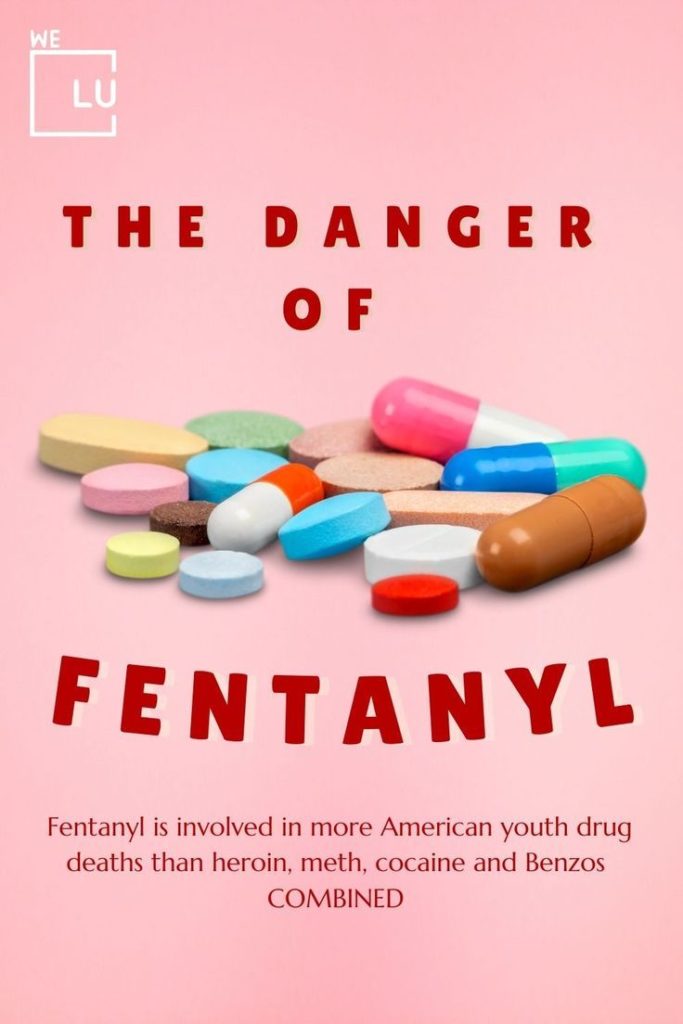
In a medical setting, fentanyl overdose treatment typically involves monitoring the person’s vital signs, administering naloxone or other medications to reverse the effects of the overdose, and providing supportive care, such as oxygen therapy or intravenous fluids. Treatment for fentanyl overdose can be challenging, and the best way to prevent an overdose is to avoid misusing the drug in the first place.
Fentanyl Addiction Treatment
Treatment for fentanyl addiction typically involves a combination of medications and behavioral therapies. Medications such as buprenorphine and methadone can help reduce withdrawal symptoms and cravings. In contrast, behavioral therapies such as cognitive-behavioral therapy (CBT) and contingency management can help individuals develop skills to manage their addiction and prevent relapse.
It is important for individuals seeking treatment for fentanyl addiction to work with a healthcare provider or addiction specialist to develop a personalized treatment plan that meets their unique needs.
World-class, Accredited, 5-Star Reviewed, Effective Addiction & Mental Health Programs. Complete Behavioral Health Inpatient Rehab, Detox plus Co-occuring Disorders Therapy.
CALL(844) 597-1011End the Addiction Pain. End the Emotional Rollercoaster. Get Your Life Back. Start Drug, Alcohol & Dual Diagnosis Mental Health Treatment Now. Get Free No-obligation Guidance by Substance Abuse Specialists Who Understand Addiction & Mental Health Recovery & Know How to Help.
We Level Up Fentanyl Overdose Dual Diagnosis Treatment
The definition of dual diagnosis (also referred to as co-occurring disorders) can differ between institutions. However, it is generally described as the specific treatment of someone diagnosed with a substance use disorder and a mental health disorder simultaneously. Treating dual-diagnosis clients is a critical aspect of our inpatient treatment experience because co-occurring disorders are strongly correlated with instances of substance abuse.
Creating a treatment plan that addresses the physical aspects of withdrawal, the psychological connection with drug use, and managing underlying mental health disorders is part of setting clients up for success. A thorough mental health analysis identifies possibilities for treatment. Meeting with mental health counselors and medical care providers means access to behavioral therapy and medication treatment. At our dual diagnosis treatment center, We Level Up can implement the highest quality of care.
We recognize the fragile complexities of how mental and substance abuse disorders can influence others and sometimes result in a vicious cycle of addiction. That’s why we offer specialized treatment in dual-diagnosis cases to provide the most excellent chance of true healing and long-lasting recovery.
Accepting that you may be living with a mental illness can be challenging. However, treating the presenting substance abuse case can be magnitudes easier once properly diagnosed and treated. Only a properly trained medical professional can diagnose these underlying conditions. If you believe you are suffering from a disorder alongside addiction, we urge you to seek a qualified treatment center to begin your journey to recovery. Call We Level Up today.
Experience Transformative Recovery at We Level Up Treatment Centers.
See our authentic success stories. Get inspired. Get the help you deserve.
Start a New Life
Begin with a free call to an addiction & behavioral health treatment advisor. Learn more about our dual-diagnosis programs. The We Level Up Treatment Center Network delivers recovery programs that vary by each treatment facility. Call to learn more.
- Personalized Care
- Caring Accountable Staff
- World-class Amenities
- Licensed & Accredited
- Renowned w/ 100s 5-Star Reviews
We’ll Call You
Signs of Fentanyl Overdose Informative Video
Joey’s Opiates, Drugs, and Alcohol Addiction Recovery Story
Joey’s story is a sad reminder of the harsh reality of addiction. He faced significant challenges in his recovery journey after losing his son, but his progress toward sobriety has been inspiring. The crucial first step for Joey was seeking help for his addiction, and he deserves all the necessary support to aid his recovery process.
Search We Level Up Signs of Fentanyl Overdose Resources
Sources
- National Institute on Drug Abuse (NIDA) – Fentanyl Drug Facts: https://www.drugabuse.gov/publications/drugfacts/fentanyl
- Centers for Disease Control and Prevention (CDC) – Fentanyl: https://www.cdc.gov/
- Substance Abuse and Mental Health Services Administration (SAMHSA) – Fentanyl: https://www.samhsa.gov/
- U.S. Drug Enforcement Administration (DEA) – Fentanyl: https://www.dea.gov/factsheets/fentanyl
- National Institutes of Health (NIH) – Fentanyl: https://medlineplus.gov/
- Office of National Drug Control Policy (ONDCP) – Fentanyl: https://www.whitehouse.gov/
- National Survey on Drug Use and Health (NSDUH) – Fentanyl: https://www.samhsa.gov//fentanyl
- Food and Drug Administration (FDA) – Fentanyl: https://www.fda.gov/
- Department of Health and Human Services (HHS) – Opioid Crisis: https://www.hhs.gov/opioids/
- National Safety Council (NSC) – Fentanyl: https://www.nsc.org/home-safety/safety-topics/drugs/fentanyl



